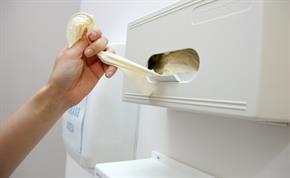As we enter the winter months, norovirus, like other infectious diseases sees a rise on the number of outbreaks.
Norovirus is mainly spread by person to person and can cause ward closure, leading to major disruption to hospital activity.
The Trust is encouraging staff to keep well against norovirus and follow IPC guidelines, some of which are below.
Prevention
- Apply standard precautions and use enteric and airborne precautions (further detail can be found in the IPC safe practice guidelines)
- Carry out hand hygiene as per WHO five moments (further detail can be found in the IPC safe practice guidelines)
- Alcohol gel has limited effectiveness against viruses and is not effective against norovirus. Hand washing with liquid soap and water should be used wherever possible. Where hand washing facilities are not available use Clinell universal sanitising wipes to wipe the hands thoroughly then use alcohol sanitiser (to kill other organisms which may be present). Wash hands as soon as facilities are available e.g. post transfer in A&E
- Wear plastic apron and disposable gloves at all times during episode of care, gloves and apron must be changed if soiled or if going from a dirty to clean or aseptic task e.g. between handling a vomit bowl and cannulating. Hand hygiene must be performed following removal/change of PPE
- Consider wearing disposable face masks and eye protection where there is a risk of splashing with vomit or a risk of generating aerosols containing the virus e.g. assisting patients whilst vomiting, or changing soiled clothing or bedding. Treat vomit bowls, incontinence pads etc as infectious clinical waste
- Do not wear PPE in the cab of the vehicle as this will contaminate all contact surfaces, e.g. steering wheel, radio etc. and may impair driving ability. The risk to the driver in a vehicle with an Interconnected cab is minimal as the primary route of transmission is contact. If the driver is required to give further assistance e.g. on arrival in A&E, then fresh PPE should be donned.
If staff get symptoms
- Do not work if you have symptoms of vomiting, diarrhoea. Stay off work until they have been symptom-free for 48 hours (without the aid of medication)
- Occupational health should be informed of your illness. This helps in monitoring episodes in order to alert the Trust to potential operational issues caused by staff sickness
- Virus particles are excreted for seven to 10 days post illness making thorough hand
- Hygiene of highest importance in reducing spread on return to work
- It is acceptable for staff to continue working if family members are symptomatic as long as the staff member has no symptoms.
If you have any questions related to Norovirus or other infectious disease, please contact the IPC team - IPCAdministrator@eastamb.nhs.uk
For more information on Norovirus, including its symptoms, hospital procedure and vehicle decontamination, please see East24.
Published 20th November, 2015
